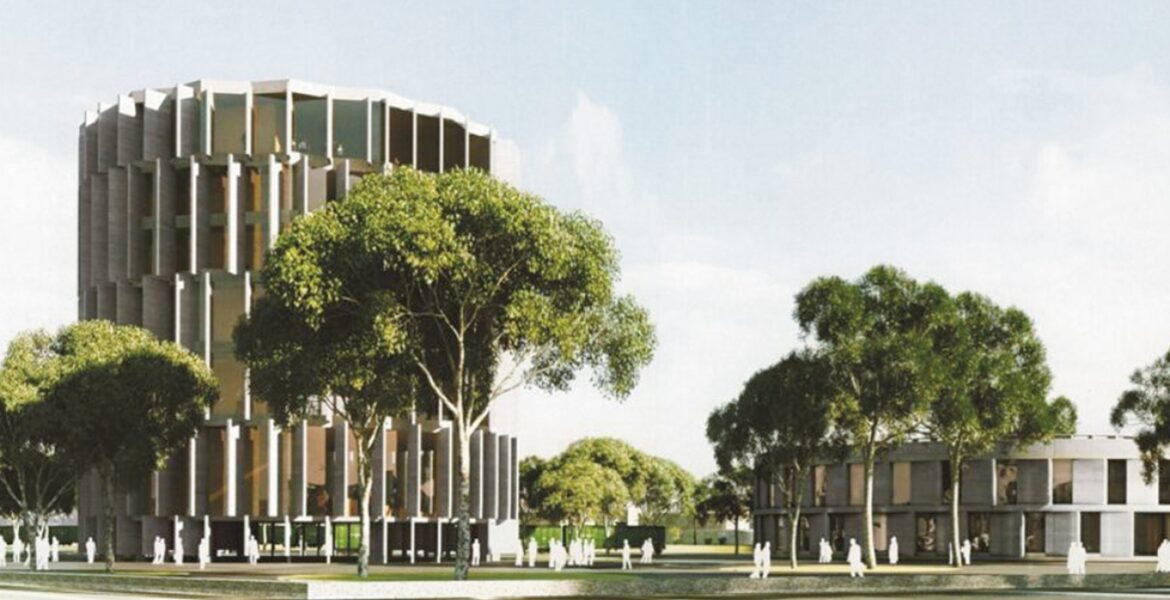The first Holocaust Museum in Greece is expected to be built at the place where the "death trains" started, which transported the Jews of Thessaloniki to concentration and extermination camps.
By 2026, Behchinari, the old Turkish name of the port of Greece's second city, will have a state-of-the-art museum which will house permanent and temporary exhibitions with designated spaces for archives, special educational facilities, administrative areas and leisure, Proto Thema reported.
The museum, in addition to being a place of memory, is expected to be, as officials say, a pole of attraction for visitors from abroad, who, according to rough estimates, are going to exceed 500,000 annually.
Specifically, the project, which is estimated to reach 29 million euros in total, will be co-financed by the German federal government to the tune of 10 million euros, another 10 million from the Stavros Niarchos Foundation, and the remaining 10 million euros the Greek government.
Albert Bourla will contribute 1 million euros. The Pfizer CEO himself is descended from a family of the very few survivors of the concentration camps and is closely connected to the city.
From March to August 1943, the Germans deported more than 45,000 Jews from Thessaloniki. Most of them were murdered in the gas chambers immediately after their arrival at Auschwitz
This symbolic place of the port is where the trains that transported the Jewish population to the extermination camps started.
Instead of a derelict space that for years served the commercial train line, an ultra-modern building will dominant the skyline and its construction will be undertaken by Samaras Group & Associates, together with Hill International.
In fact, just last week the pre-approval of the building permit for the construction of the museum was secured and everything shows that the impressive multi-storey building, with the octagonal floor plan and panoramic views of the city is now becoming a visible reality.
Before World War II, Thessaloniki had the largest Jewish community in Greece. During the German occupation, the Jewish population was approximately 52,000. After the war there were only about 1,500 people left
In addition to its function as a place of memory, the museum will house the archives, books and other objects that the German occupation authorities seized in 1942 from the synagogues and institutions of Thessaloniki and later transported them in Berlin.
The search for the material was, indeed, difficult, as many records, objects and valuable possessions of the Jews of Thessaloniki were rescued by the Soviet army and transported to Moscow in 1945.
Fortunately, after negotiations, the Russian government announced, only in 2021, its decision to return the material to Greece to be deposited in the Holocaust Museum under construction.
It is therefore certain that the public display of such important material has much to reveal about the conditions, experiences and lives of those who were exterminated in the concentration camps.
As both the project manager of the project and president of the Samaras & Associates Group, Dimitris Samaras, as well as the president of the Israeli Community of Thessaloniki, the Holocaust Museum and the Central Jewish Council of Greece, David Saltiel, pointed out in the event organised by the Israeli Community of Thessaloniki , the Holocaust Museum is expected to change the typology, the image and the economy of the city.
The purpose of the Holocaust Museum, Saltiel said, is not only to honour the 6 million Jewish victims of the Nazis, but also to teach young people "what happened then and what we must do to prevent it from happening again."
The goal, regarding the upcoming construction of the museum, is to complete the final study next June and then pave the way for the building permit and the selection of the general contractor.
Construction will begin no later than November, with the goal of completion in late 2025 and opening of the Holocaust Museum in early 2026.



The history of this interesting project and the architectural design elements are discussed here: http://www.holocausteducenter.gr/